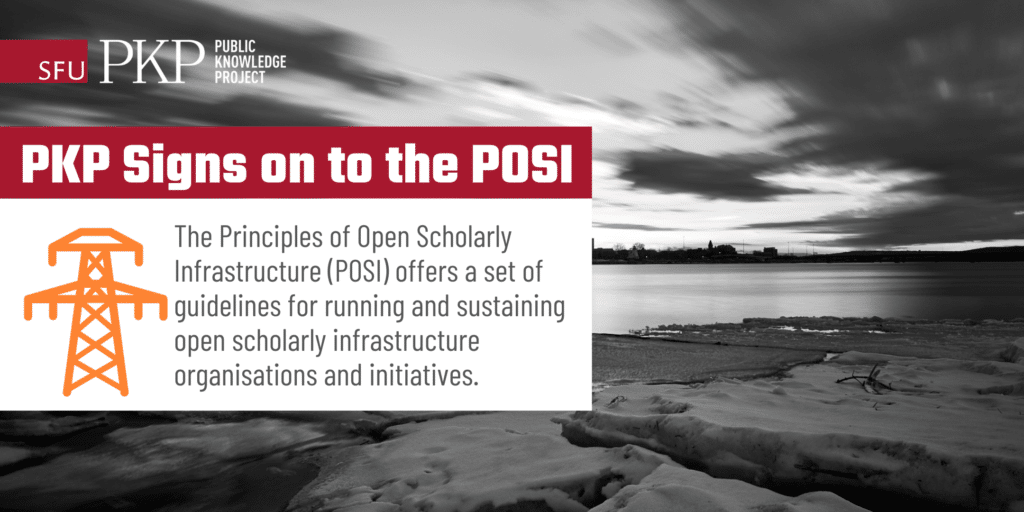PKP Signs on to the POSI

PKP is pleased to announce that it is a supporter of the Principles for Open Scholarly Infrastructure (POSI).
Since its founding in 1998, the Public Knowledge Project has been committed to open principles, most particularly around releasing our software under an open source license. Because of this, we were very enthusiastic about the development of the Principles for Open Scholarly Infrastructure (POSI) as a way for us and other infrastructure providers to demonstrate our adherence to these values clearly.
Over the years, our sense of openness has evolved, from an early focus on open source licensing to Creative Commons licensing for non-code outputs, and then more broadly into concepts of openness as transparency in our governance, operations, and how we do business. These are all welcome advances and the POSI helps us think more carefully about openness, track our progress, and make new advances.
In doing our self-assessment, we were pleased to see how we had already achieved a number of the criteria but were surprised by what we hadn’t made clear on our public-facing website. These were easy but crucially important changes to make.
Going deeper, POSI challenged us to, also, think in new ways about issues of patents and living wills. This is all part of shifting our thinking from an early “project” perspective into fully understanding our responsibilities as a long-term, sustainable infrastructure provider that is depended upon by thousands of journals (and readers) worldwide.
POSI, through its own openness, allowed us to review the responses of our peers and learn more about the advances they had made and helped us see a way forward in keeping up with them.
As valuable as the initial self-assessment was, we agree that an ongoing, annual review is critical, to ensure we continue to uphold these principles, but also ensure that we advance wherever there is an opportunity.
We are grateful to the original authors of POSI for conceiving this important idea and our peer infrastructures for participating in the process and making their assessments public. We are all beneficiaries of this work.
